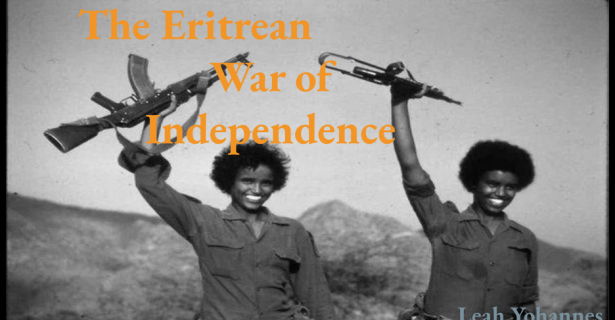This summer I am interning with One Day Seyoum (ODS), a youth-led organization dedicated to publicizing human rights violations in Eritrea and to speaking out against the current regime. The group was originally started as a student club by Vanessa Tsehaye in honor of her uncle, Seyoum Tsehaye, an Eritrean photojournalist who was imprisoned during the government shutdown of the free press.
Since starting at ODS, I have been blown away by the dedication of the organization’s members. One Day Seyoum runs on an entirely voluntary basis, and members dedicate their free time and resources to supporting the organization. I was first introduced to ODS through their Purple for Ciham campaign, where they encourage young people to utilize their social media platforms to advocate for Ciham Ali, a teenager currently imprisoned in Eritrea. I was inspired by the talent and resourcefulness of the organization in using innovative ways of spreading awareness utilizing social media and, I am incredibly excited to support their work in a formal capacity as an Oslo Scholar.
As an intern, my responsibilities are to implement similar campaigns, the first of which was ODS’s African Day of the Child campaign. For the project I, along with a team of interns, researched and compiled stories of unjust child imprisonment in Eritrea, including accounts of children as young as eight years old being detained for fleeing the country. Using these stories, I was able design a media package that included infographics for their social media platforms. Watching the network of students, activists, and influencers who support the organization mobilize online behind the campaign was incredibly inspiring and motivating.
One of the most interesting parts of the internship so far was when our executive director participated in a panel discussion that I live tweeted for the organization’s Twitter account.
On the panel were advocates for and against the Eritrean regime. After researching and reading about the government’s mass human rights violations at the beginning of my work with ODS, I was curious to see how people who publicly supported the government justified these actions.
One pro-government panelist, Fitsum Tesfamichael, attempted to address these issues by saying, “We have to have priorities. The priority is how do I save the country, how do I contribute and then second, third, and maybe there will come a day when we can do many things at one time.” This mindset was particularly appalling and spoke to the frustrating nature of the work that the organization does. The idea that basic human rights, the right to free speech, and freedom from forced labor and military conscription is a secondary concern is troubling to say the least.
Since starting the internship, I have been able to engage in productive dialogues within my own home and community. My first assignment as an intern was to research and present information from a distinct period of Eritrean history in order to gain context for the work that we would be doing this summer. I chose to cover the Eritrean War of Independence. In doing so, I was able to learn more about my own history as an Ethiopian-American. Additionally, I frequently find that when I discuss ODS’s work and repost the organization’s content, family members and friends, particularly those from the Habesha community, reach out to me to express their shock and interest in learning more. Moving forward, I am looking forward to engaging in more critical thinking regarding the way that the U.S. and the EU support the current Eritrean regime and the way that we can hold politicians and those that are silent on these issues accountable.

